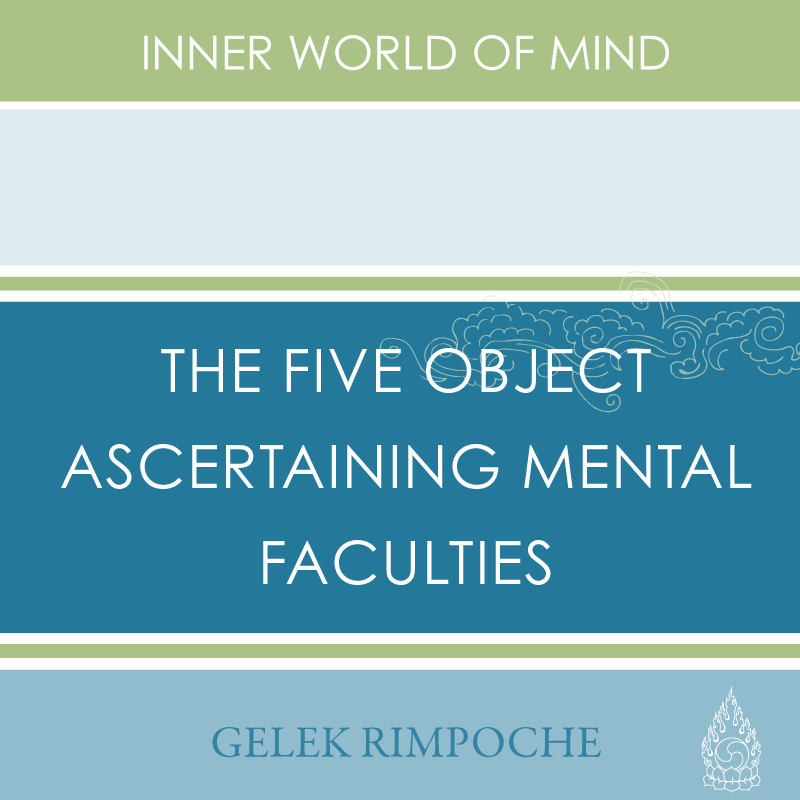The Five Object Ascertaining Mental Faculties


Aspiration (dun pa)
Lesson Number 1 of 5
According to Buddhist philosophy, there are 52 aspects and functions of your mind. “If you recognize them,” says Gelek Rimpoche, “you can use them to master anything.”
In this lesson, Rimpoche briefly reviews the Five Omnipresent Faculties of the Mind (Feeling, Discernment, Intention, Contact and Attention) and introduces the first of the Five Object Ascertaining Mental Factors—Aspiration

Belief – mopa
Lesson Number 2 of 5
The second of the Five Object Ascertaining Mental Factors, “Belief” helps us stick to our principles. When that mental factor is functioning properly, we hold to our convictions without stubbornness and with an open mind.
In this lesson, Gelek Rimpoche explains that all virtue arises from belief, or a strong holding to what we feel is true and right for us. The opposite of belief is “flip-flopping,” and being easily swayed by the opinions of others.

Mindfulness
Lesson Number 3 of 5
If Buddhist teachings are to be useful to us, it is important to remember them daily and keep them fresh in our minds. The mental factor of mindfulness helps us retain what we have learned and stay focused on what is important in life.
In this lesson, Gelek Rimpoche explains that mindfulness is an antidote to a “wandering mind”—a mind that lets knowledge go “in one ear and out the other.” All spiritual development depends on mindfulness.

Concentration
Lesson Number 4 of 5
In this lesson, Gelek Rimpoche explains that we need the mental power of concentration to rid ourselves of negativities of thought and behavior. To develop the mental factor of concentration, there are many objects on which to focus. Rimpoche suggests five objects of concentration that are useful for purification and overcoming negativity.

Wisdom
Lesson Number 5 of 5
In this lesson, Gelek Rimpoche explains that wisdom is the best weapon to cut doubt and is the root of all qualities. He explains the four logical reasonings that are the essence of this mental faculty. Wisdom is not external. It is with us, within us, is a faculty of our minds that we can access now.


